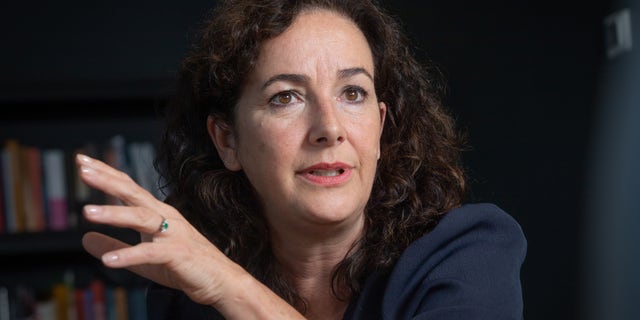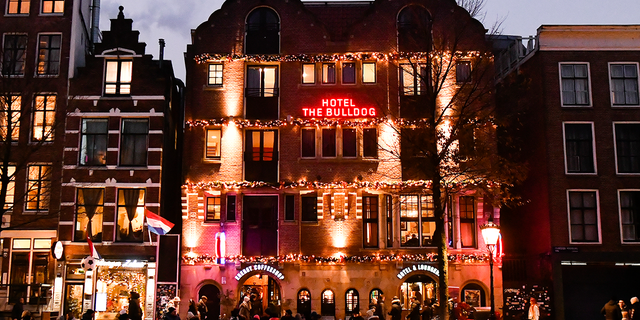Amsterdam’s long-awaited plans to diminish its red-light district and establish a legal alternative “erotic center” continue to face pushback from sex workers, bartenders and entrepreneurs.
City officials introduced new measures to crack down on related issues that make the famous red-light district less attractive, with noise limits and substance abuse at the forefront of new laws passed this spring. The chief alternative offered by Mayor Femke Halsema would see the establishment of an “erotic center” that would continue to allow legal prostitution in the city – just outside the red-light district.
“An erotic center doesn’t mean that there won’t be prostitution in the red-light district,” Halsema said, arguing the center would prove safer for sex workers even as they insist they prefer to remain. “It does mean that the red-light district has to lose its appeal as the most important attraction for tourists,” Halsema was quoted in a report by The New York Times.
The government has yet to determine a location for the potential “erotic center” and plans to decide by early next year. Opponents insist that the center would make an “out of sight, out of mind” approach to the issue.
23-YEAR-OLD DANISH SHOOTER WHO BELIEVED VICTIMS WERE ZOMBIES SENTENCED TO MENTAL HEALTH FACILITY
People walk inside Amsterdam’s red-light district on Dec. 10, 2022. (Stefano Guidi/Getty Images)
Legislation introduced in the spring requires bars in the area to close by 2 a.m. and deny new entry an hour beforehand; sex workers to close up shop by 3 a.m. instead of 6 a.m.; and no one can smoke marijuana in the streets anymore, The New York Times reported.
The new rules have understandably upset local workers and businesses in the area, complaining they have less time to make the same money needed to cover rent and other daily expenses – a move that makes it hard for workers to take a more discerning eye toward customers.
Amsterdam over the winter also voted to permanently shutter windows for sex workers’ rooms in an effort to try and clean up the look of the area and improve its attraction as a residential area.
UN COUNCIL WILL HOLD AI MEETING ON RISKS TO INTERNATIONAL PEACE, SECURITY

Femke Halsema, Amsterdam’s mayor, during an interview at her city hall office on July 6, 2022. (Peter Boer/Bloomberg via Getty Images)
Christian Democratic Appeal Councilor Diederik Boomsma said the city needed to rid its image of a place where “you go to do all the things that aren’t allowed at home, such as drugs and prostitution.”
“We need to overcome this jaded, faux-progressive understanding of freedom as liberation from all taboos and letting yourself go and return to a more mature understanding of freedom, as self-government,” he explained.
Deputy Mayor Sofyan Mbarki said in a statement in December that businesses “misuse” Amsterdam’s image to sell it as a place of “unlimited possibility,” creating the sense of a place where “anything goes.”
DUTCH, LUXEMBOURGISH PMS PUSH SERBIA, KOSOVO TO DEFUSE TENSIONS UNDER UKRAINE WAR’S SHADOW

The Bulldog Hotel on Dec. 10, 2022, in Amsterdam, Netherlands. (Stefano Guidi/Getty Images)
“This kind of tourism, as well as offerings specifically targeting these groups, is not considered desirable by the municipal executive,” Mbarki said.
Officials in 2019 banned tours of the red-light district, one of Amsterdam’s oldest neighborhoods.
CLICK HERE TO GET THE FOX NEWS APP
The city reportedly welcomed around 20 million visitors, with tracking for 30 million annual tourists by 2030, in contrast to a local population of around 900,000 people.
Fox News Digital’s Andrew Mark Miller contributed to this report.